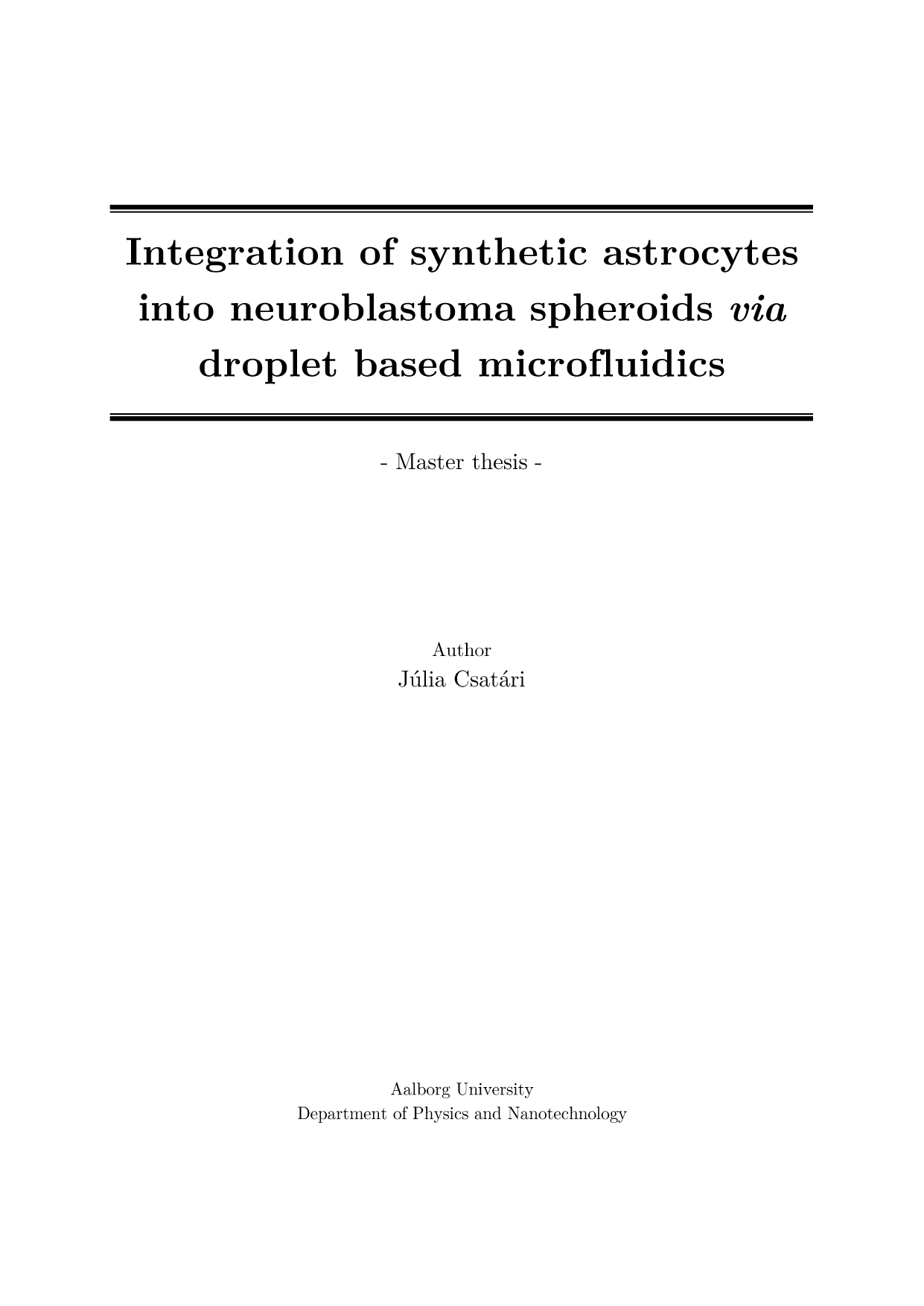
Integration of synthetic astrocytes into neuroblastoma spheroids via droplet based microfluidics
Author
Term
4. term
Education
Publication year
2019
Submitted on
2019-06-10
Pages
70
Abstract
To accurately mimic tissues with high accuracy in vitro, 3D cell culture-models termed spheroids are receiving increased attention in research. Using microfluidic methods to form spheroids can offer a well-defined microenvironment for controlled assembly, where the cell-cell distance is reduced, boosting intercellular interactions. Here, we present and assess a microfluidic scaffold-free approach for high throughput neuroblastoma-astrocyte co-culture spheroids and neuroblastoma-giant unilamellar vesicle semi-synthetic spheroid formation. After successful generation of neuronal spheroids, differentiation dynamics into mature neuronal networks are assessed under three conditions: 1) Treatment with retinoic acid (a potent inducer of neuronal differentiation), 2) defined co-culture with astrocytes and 3) a hybrid spheroid of living neurons and minimal synthetic astrocytes harbouring NrCAM adhesion proteins. The generation of the latter will exemplarily demonstrate how minimalistic synthetic cells can probe specific differentiation and neuron-glia interaction patterns. For all three approaches, morphological analysis and expression of differentiation markers were evaluated.
Keywords
spheroid ; neuroblastoma ; astrocyte ; GUV ; microfluidics
Documents
